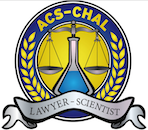Trial Before The Court
I had a prosecuting attorney turn down my request to conduct a "Trial Before The Court" (TBC) recently. TBC is basically a trial without a jury. In a “bench trial” the judge not only decides the law, but also the facts. My reasons for doing so were primarily attributed to time. My client was a college student and could have spent the better part of a week in a jury trial. Usually, TBC’s will last no longer than a day, sometimes even half a day. My client had final exams later in the week, so a jury trial was not an option.
In Texas, the state has to "wave" the jury requirement before a TBC can be conducted. In my case, the state would not waive jury. The prosecutor stated how the judge was "pro-defense" and they couldn’t risk it. To me, what they were essentially saying is they were scared that the judge, in his infinite wisdom, would not "follow the law." The judge in any trial is bound to make correct rulings on the law. However, with a jury trial, we leave it within the province of the jury to accept what the “facts” are, then apply that evidence against what the judge directs the law to be. With a TBC essentially the judge does both.
To decide if a TBC is in your interest, you must first weigh the jury pool and the potential people on the venire. If a judge has a reputation of being pro-prosecution (an ex-prosecutor) then you may want a jury. It can also depend on what the charge is. If you are charged with a serious felony, then the circumstances can differ. District court judges deal with serious criminal cases every day. This produces both a familiarity and objectivity that may be lacking in a potential juror. The judge (should) also be able to properly apply the heavy burden of proof on the state, while some juries simply disregard it.
In this circumstance, the main consideration was for the quickest resolution to the case. Bench trials are not only quicker, but also less stressful for defendants. Jury trials usually include a high amount of anxiety and stress on most defendants. Not many want to be put on display in public, judged by others from the community, questioned by prosecutors, etc. Thus, a TBC in some cases is more fitting for particular defendants.
I am of the opinion, however, that the state should not be able to bar a defendant from the chance to opt for a TBC. All of the aforementioned characteristics of a jury trial are not present, and in many cases it is more appropriate. If the state does not waive jury, I think the judge should be offended. Because what the prosecutor is ultimately saying is that judge lacks the ability to be fair in applying the law to the facts.
Furthermore, the accused has the presumption of the innocence and must always be given the benefit of the doubt (hence proof "beyond a reasonable doubt"). Everything must be considered viewed in the best light for the accused. Therefore, I am of the opinion that if the attorney and the accused colloborate and both decide it is in their interest to have a judge, and not a jury, decide their fate, I think that decision should always be honored.
After all, the goal of every prosecutor and the oath taken is to ensure that "justice be done." If the prosecutors cannot trust a judge to seek justice above all else, then something is wrong. However, in cases where the state will not waive jury, I have a suspicion that the prosecutor has forgotten the oath taken and only is thinking in terms on how to best secure a conviction. This mentality is not what our country was founded on, and is against everything I personally believe in. I don't think the state should EVER have the power to block the accused from seeking remedy from a judge, and not the potential vagaries of a jury. If the state disagrees with this assertion, it seems they should not be prosecuting the case at all.






















